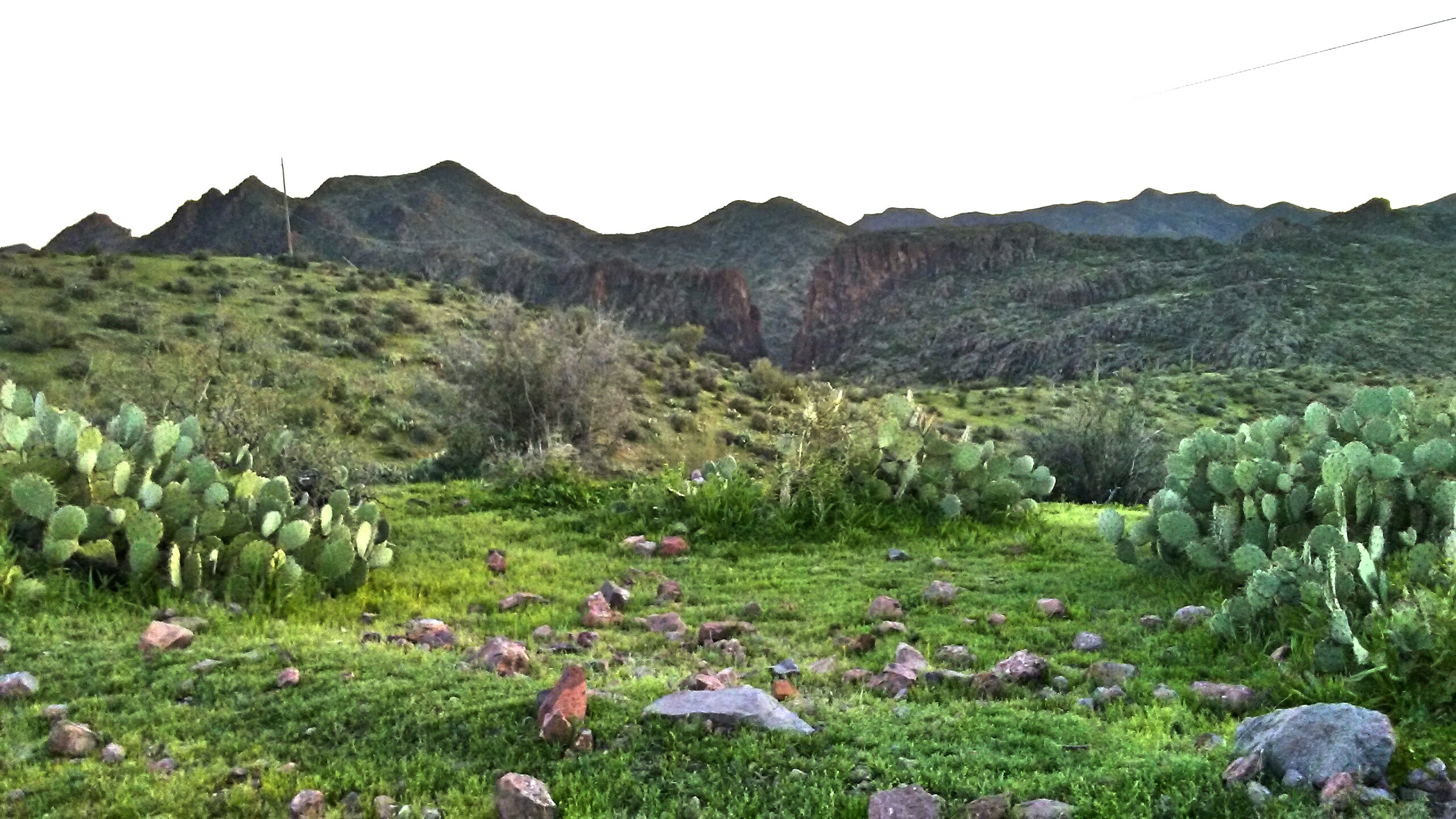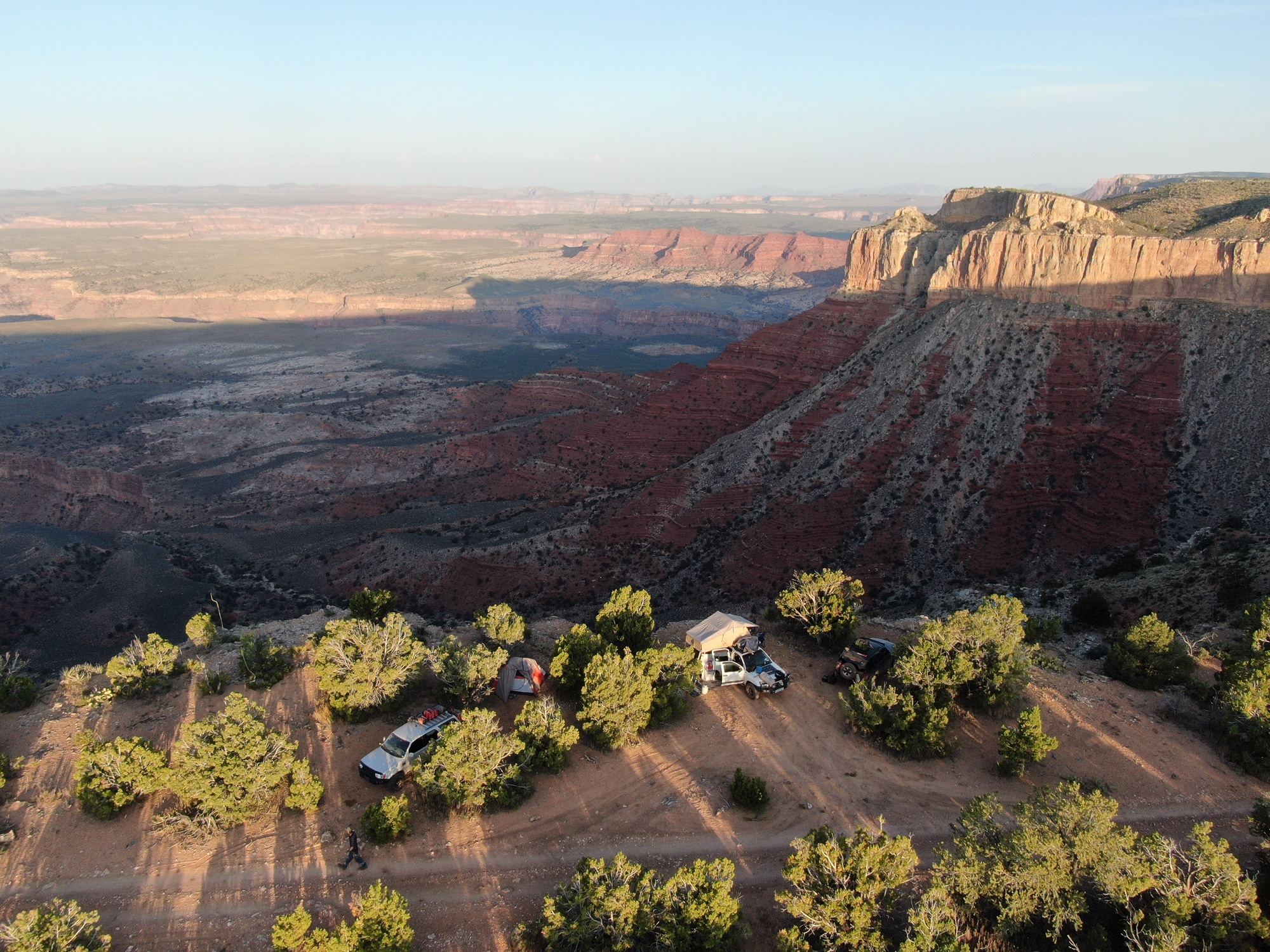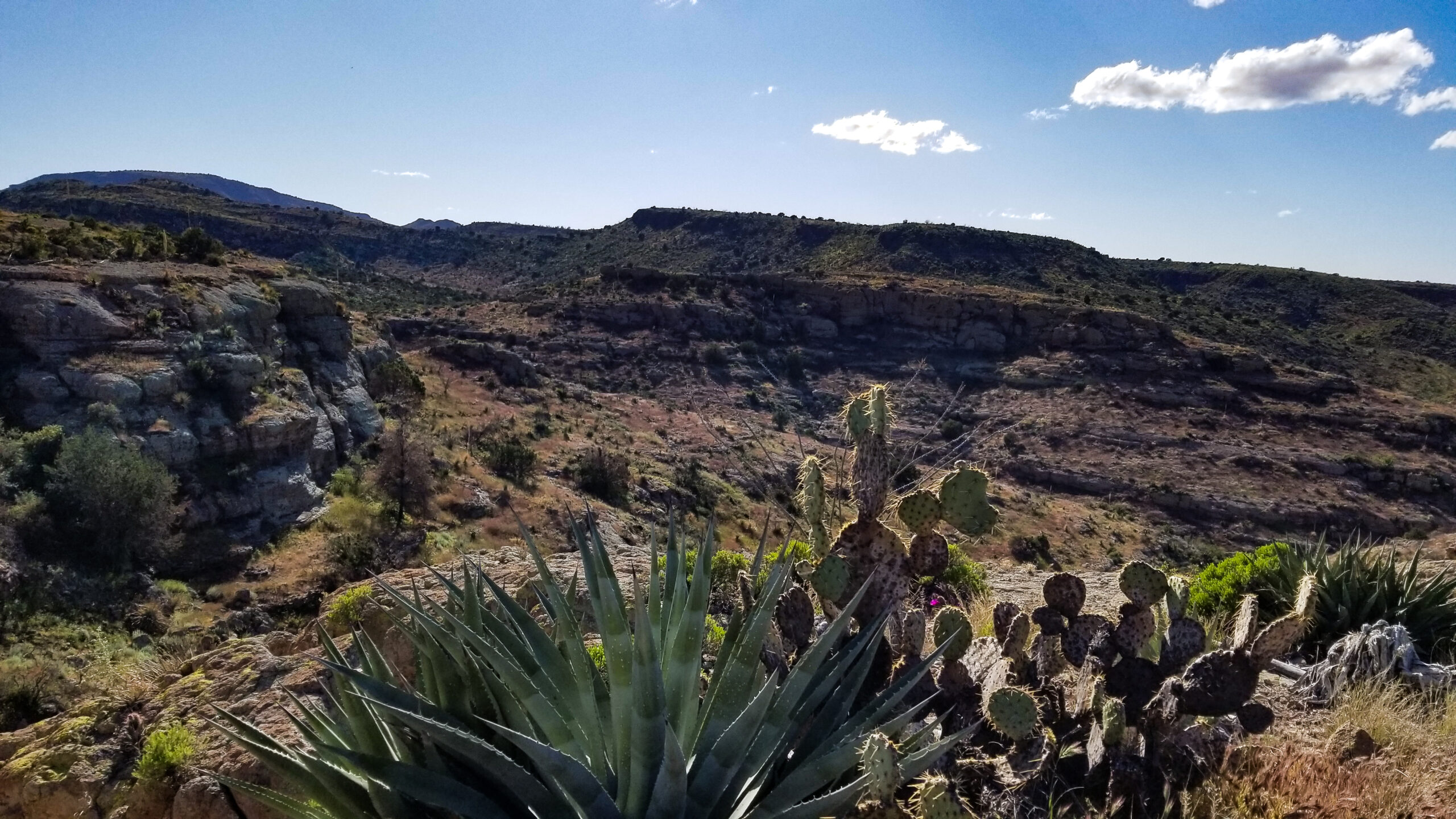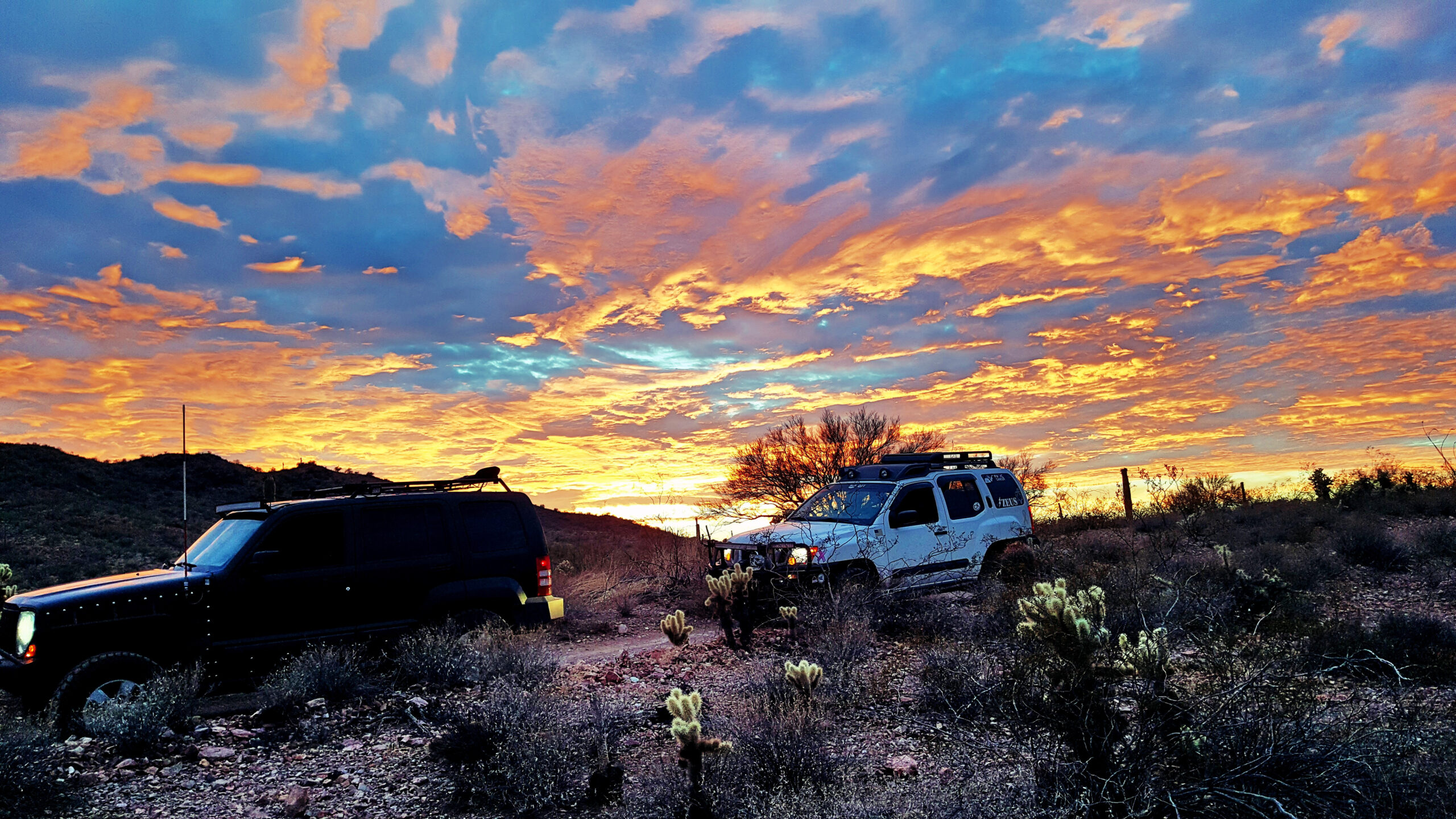Your cart is currently empty!
Another scenic drive threatened with closure.
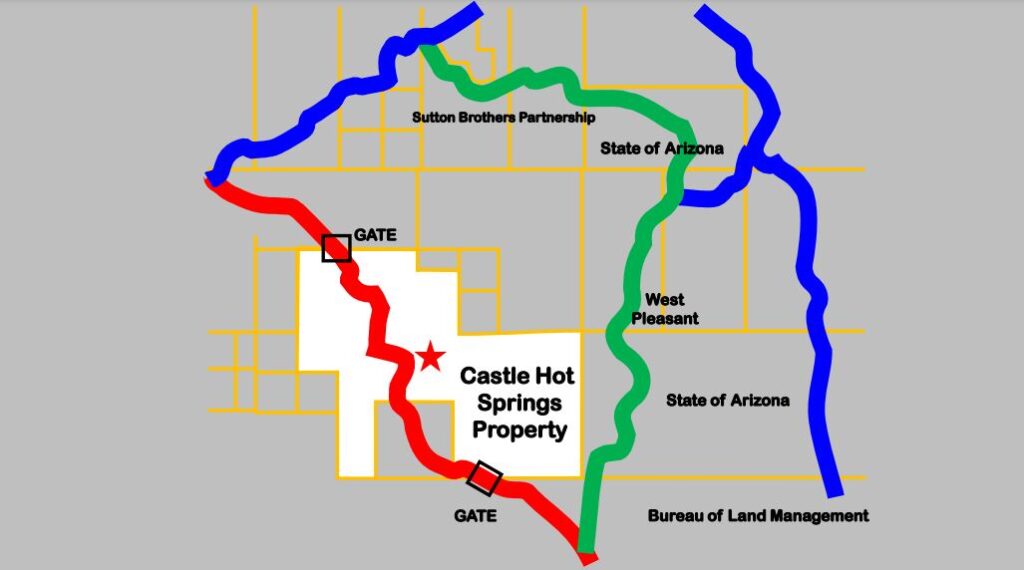
Castle Hot Springs Road is among the most amazing scenic drives in Arizona. The road is approximately 35 miles long and crosses the Yavapai and Maricopa county line traveling from Morristown, Arizona, to Lake Pleasant meandering through the incredible foothills of the Bradshaw Mountains. The road is vested in local history and has been maintained by the County for decades.
This primitive county road is graded smooth and provides access by passenger car to several recreation opportunities in the surrounding area, including the Hells Gate Wilderness and several thousand acres of public and state land. In between the vast amount of private land, there are several opportunities for adventure along the trail including rock climbing, four-wheeling, hiking, mountain biking, gold prospecting, and more.
Castle Hot Springs Road was built sometime in the late 1890s and was originally a wagon road that traveled from the train stop in Morristown Arizona to the famous Castle Hot Spring Resort. During its time, Castle Hotsprings Resort was enjoyed by many of the most prominent individuals. John F. Kennedy stayed at the resort to recover after serving in World War 2 and it was the first place in Arizona to have a telephone.
A formal Proposal to errect gates and build a bypass.
Today, the Castle Hot Springs Resort has been restored and is back open after being closed for decades. The owners don’t like that there is a county road traveling through the property. Therefore, the new owners of Castle Hotsprings Resort have made a formal proposal to Yavapai County to erect gates blocking Castle Hot Springs Road on either end of the property to limit access. The landowners are proposing an alternate route around the resort. If approved, this plan will forfeit a long-standing RS 2477 Right-Of-Way protected under state and federal law.
Currently, Yavapai County Attorneys are reviewing the legality of limiting public access through the property and utilizing the bypass. The county is unsure who will maintain the road as any new roads added to the system will need to be built to current county standards. This means pavement, bridges, signs, and other improvements that are not realistic for a primitive road.

Historic Roads must be protected!
An act granting the right-of-way to ditch and canal owners over public lands, and for other purposes.
“The right-of-way for the construction of highways over public lands, not reserved for public use, is hereby granted.”
Sec. 8 of the Act of July 26, 1866, 14 Stat. 253, later codified at 43 U.S.C. 932
The mining act of 1865 is quite possibly the most important law ever passed by the US Congress. Section 8, better known as Revised Statute 2477, granted Western Settlers the basic human right to freely pass over public lands and establish those paths as highways. RS 2477 was a self-executing grant, required no permission from the federal government, and repeatedly covering a path to establish a visible way constituted construction. Once constructed, an RS 2477 right-of-way could not be blocked by any newly claimed land under the various homestead or mining laws.
RS 2477 rights-of-way apply to any established path over federal land, including pack trails, hiking trails, wagon roads, animal trails, railroads, bridges, motorized roads, and interstate highways. The key factor with RS 2477 is “public lands, not reserved for public use.” This term limited RS 2477 rights-of-way to lands that were not claimed under the various homestead and mining laws or lands that were withdrawn or set aside by an act of Congress or executive order such as National Parks, Forest Reserves, and Wilderness Areas.
Construction on RS 2477 roads must have begun before the land was withdrawn from public entry and any new claims under the mining or homestead laws that overlapped RS 2477 Rights-Of-Way included easements.
This practice continued for over 110 years until 1976 when the Mining Act of 1865 was repealed by the Federal Land Policy Management Act (FLPMA). However, FLPMA specifically recognized all land rights that were in existence at the time, including rights-of-way. From 1976 to today, all new roads constructed over federal land are permitted by the federal government, and RS 2477 does not apply.
The Federal Land Policy Management Act of 1976 (FLPMA) states:
“Nothing in this Act, or in any amendment made by this Act, shall be construed as terminating any valid lease, permit, patent, right-of-way, or other land use right or authorization existing on the date of approval of this act.”
FLPMA 701(a), 43 U.S.C. 1701 note (a).“All actions by the Secretary concerned under this Act shall be subject to valid existing rights.”
FLPMA 701(h), 43 U.S.C. 1701 note (h).“Nothing in this title [43 U.S.C. 1761 et seq.] shall have the effect of terminating any right-of-way or right-of-use heretofore issued, granted or permitted.”
FLPMA 509(a), 43 U.S.C. 1769(a).
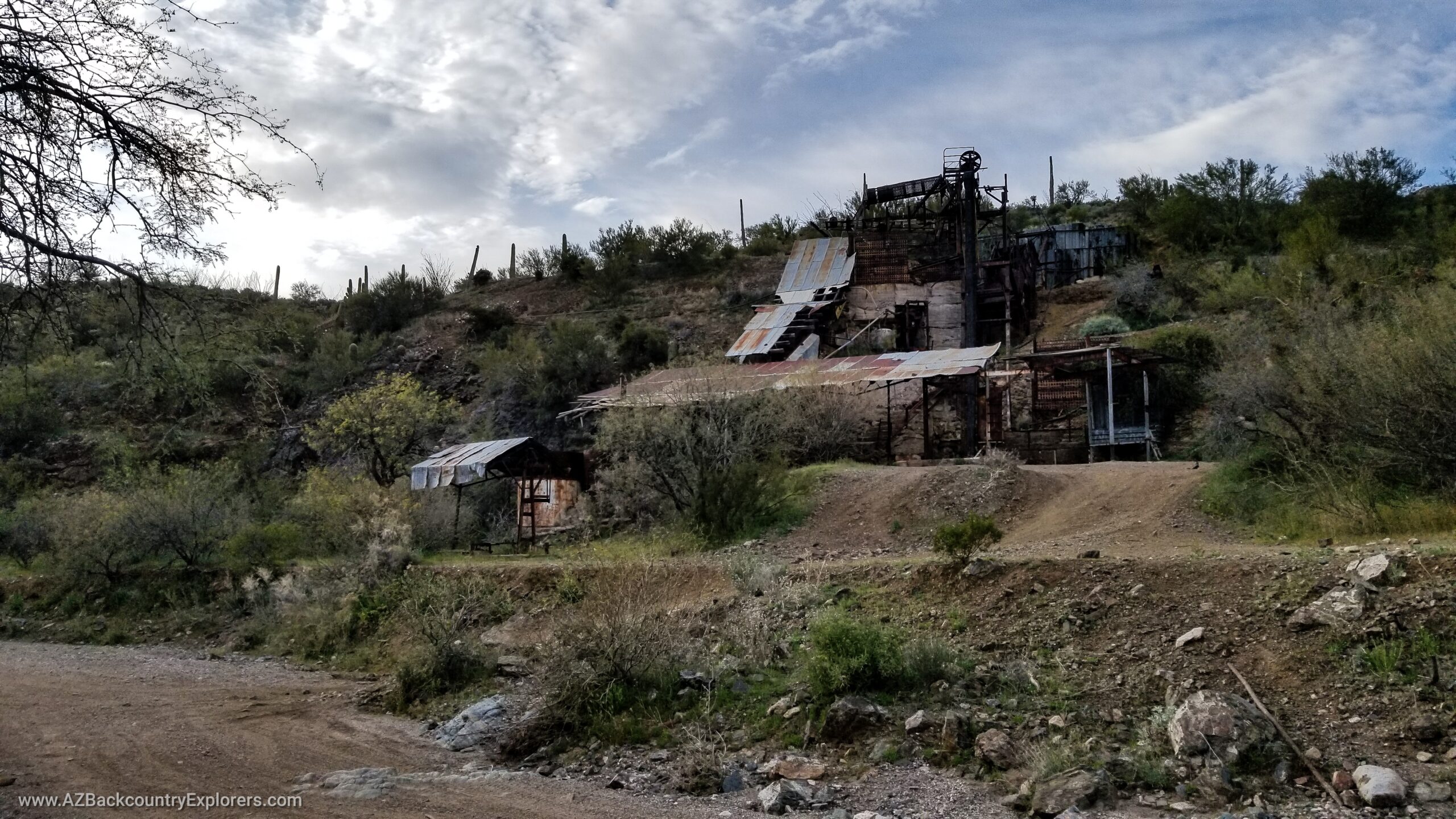
Please consider becoming a supporting member.
For just 30 cents a day, you can help us do more.
Get access to our most memorable adventures, plus our collection of over 1,300 POI and commentary by the author.
How does this apply to Castle Hot Springs Road?
Early federal regulations and several supreme court cases have determined that RS 2477 rights-of-way are governed by state law and held by the state on behalf of its citizens. Arizona Revised Statute 37.931 asserts a claim to RS 2477 Rights-Of-Way. It determines how RS 2477 roads are governed by the state, county, and municipal governments while laying out the requirements to close or abandon roads that are subject to the statute.
Attorney General Mark Bronovich has also issued an opinion on RS 2477 roads. In that opinion, he states:
“Under limited circumstances (e.g., emergencies), the owner of the servient estate may temporarily bar an easement owner from accessing a right-of-way. Still, the validity of certain emergency interventions does not legitimize either closures in the absence of an emergency or closures of such extended duration that the use of the easement is completely frustrated. In cases of unreasonable interference with the public’s access, the officials and employees of the State and its political subdivisions should seek injunctive relief in court and may perform such self-help remedies as may be available and would not breach the peace.“
Castle Hot Spring Road was there before the resort.
The road is shown on survey plats as early as 1891 and was originally a wagon road that guided visitors from a train stop in Morristown, Arizona, to the world-famous Castle Hot Springs Resort. The road was built over unsurveyed public land managed by the General Land Office. Exactly when the first path was constructed is unknown, but we know the wagon road existed before the homestead was patented at Castle Hot Springs Resort.
This means that Castle Hot Springs Road met the requirements of Revised Statute 2477 and therefore provides a fundamental right of passage to the citizens of Arizona that we entrusted to the local government and thus is governed by ARS 37.031.
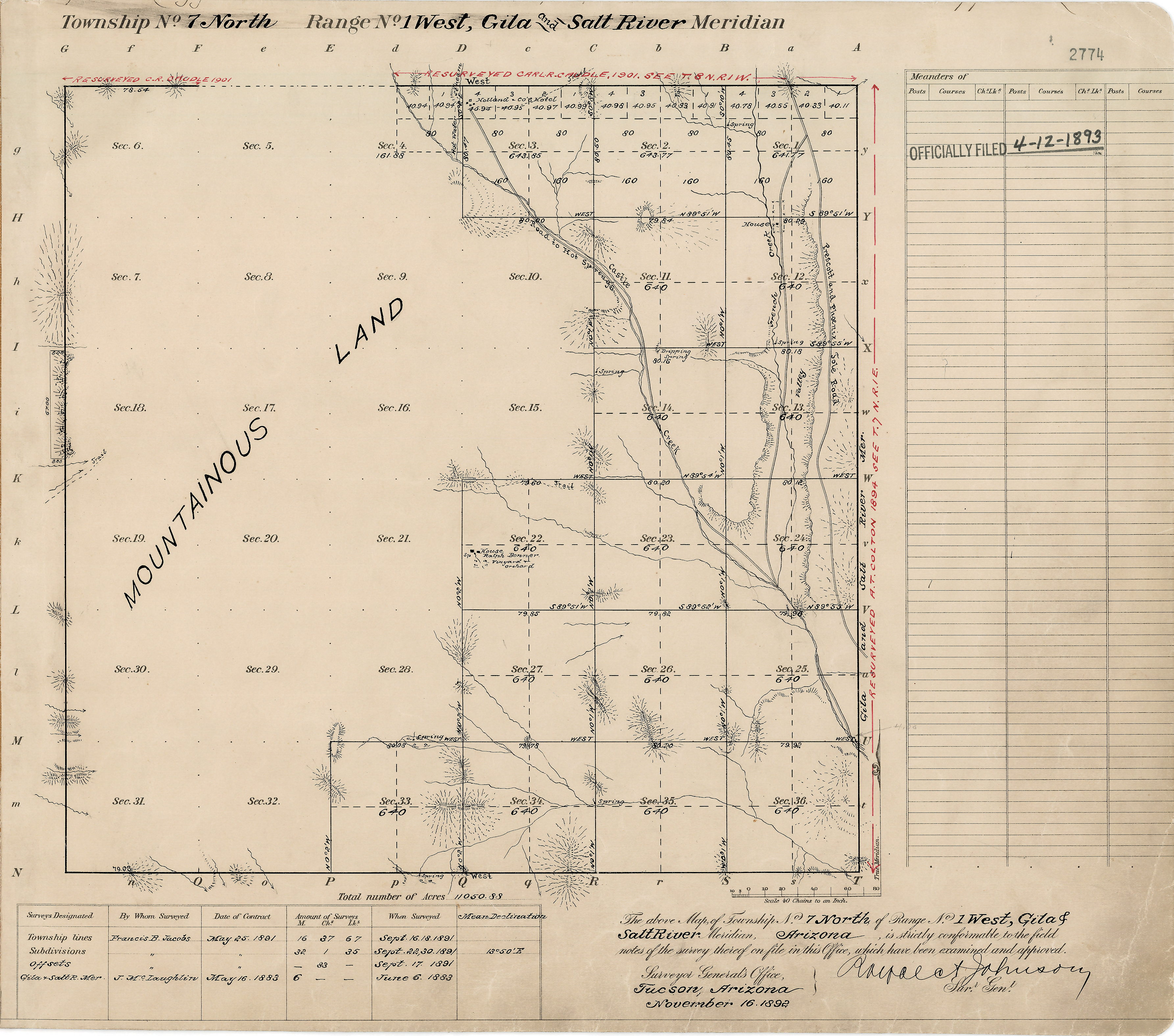
The First Homestead Filed in 1894
It wasn’t until March 15, 1894, that Thomas Holland filed application No. 890 for a 161.88-acre homestead at Castle Hot Springs. Thomas was awarded Homestead Certificate No. 308 signed by US President Grover Clevland. However, by this time, Castle Hot Springs Road had already been built.
Right on the last line of the homestead description, in bold letters, it states, “there is reserved,” and continues to acknowledge, “from the lands hereby granted, a right of way thereon for ditches and canals constructed by the authority of the United States.” This last sentence referred to the Mining Act of 1866 and reserved “the right of way to canal and ditch owners over public lands” and specifically recognized a RS 2477 Right-Of-Way as “reserved” from the claimed land.
In other words, the official Homestead Certificate acknowledges an easement through the property for Castle Hot Springs Road. The easement is a public way that is technically 60 feet wide.
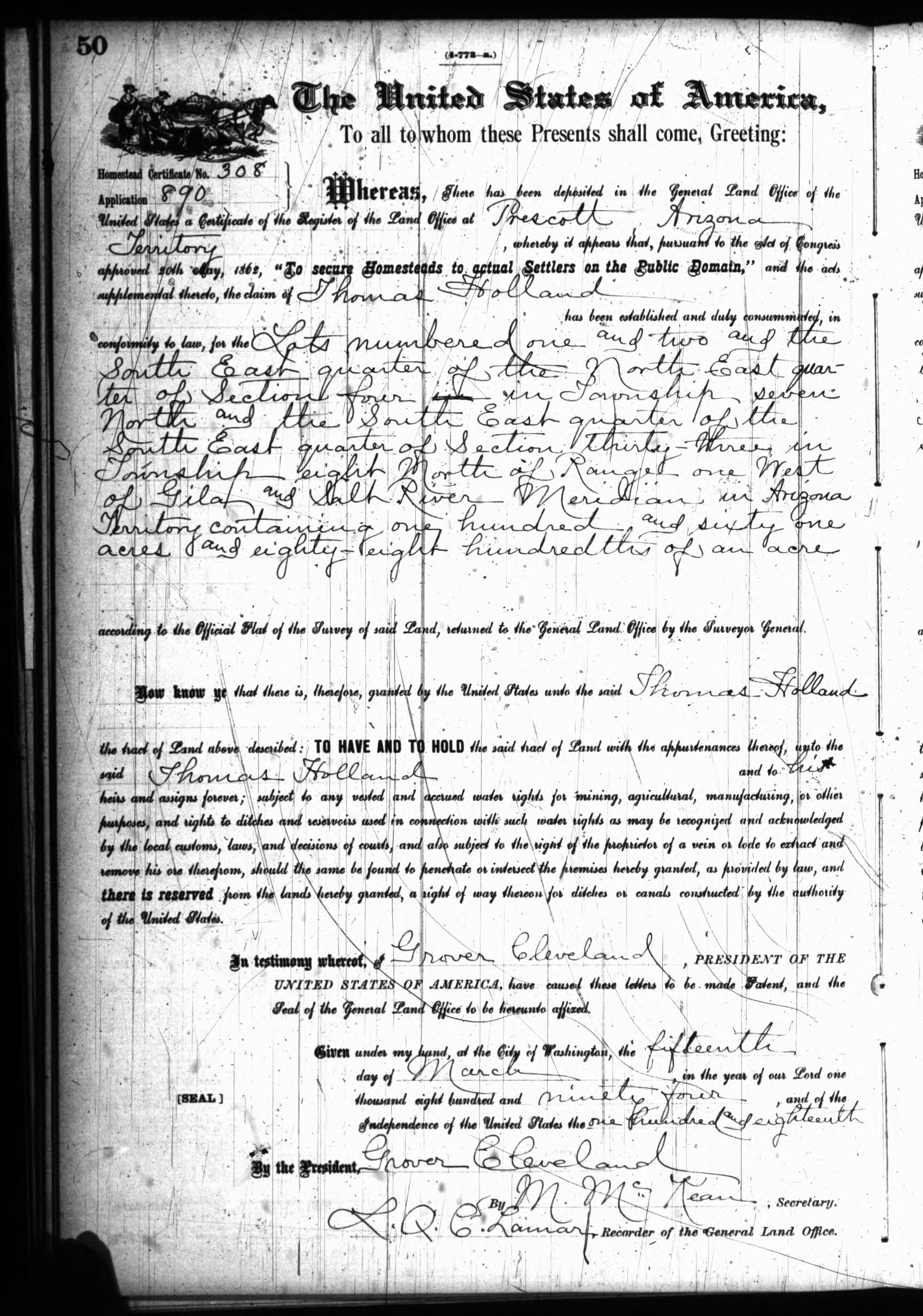
A new bypass will not have the protections under ARS 37.931 or RS 2477 and will be built to new standards.
There is no doubt that this road falls under RS 2477 and ARS 37.931 and should be protected on its current path. Although we understand private property owners can lock gates on certain properties, we also understand the protections attached to Revised Statute 2477 roads. This is not just a random dirt road in the desert. This is an actual county road that has been maintained in its current condition for decades.
Allowing the resort to install a gate and deny access to the public on a county road in exchange for an alternate route would be forfeiting a fundamental RS 2477 right-of-way to a portion of the road. Any new bypasses will not inherit the protections of pre-FLPMA, RS2477 roads.
This bypass will require a new road to be built over the adjacent public, state, and private land and impose an undue burden on the county. The road will need to be paved and have guard rails with bridges and other unnecessary improvements. It will require a National Environmental Policy Act procedure for construction and any improvements. It is also likely that accidents will occur as speeds will increase on a paved road.
The proposal includes the assumption that the surrounding landowners would pay for the maintenance increase of the new road. However, maintenance on a public road built to new standards could cost hundreds of thousands of dollars, ultimately jeopardizing the alternate route if disputes among landowners and the county arise.
Download and read the following presentation by the Castle Hot Springs Resort.
This was presented to the county supervisor to convince the county to accept the Castle Hot Springs proposal. Please understand, the OHV photos in the following presentation ARE NOT Castle Hot Springs Road and the Castle Creek Wash only floods during heavy monsoon storms.
Yavapia County wants to hear from you!
We have arranged to collect comments from our readers for Yavapai County. Yavapai County officials are interested in what the Motorized Community has to say.
Would you please tell the Yavapai County official your thoughts on this proposal?
The information contained in this article has been sent to the Yavapai County Board of Supervisors, and they are waiting for your message.
Our system will send the information collected in the form below directly to the Yavapai County Cleark of the Board and the Yavapai County Attorneys.
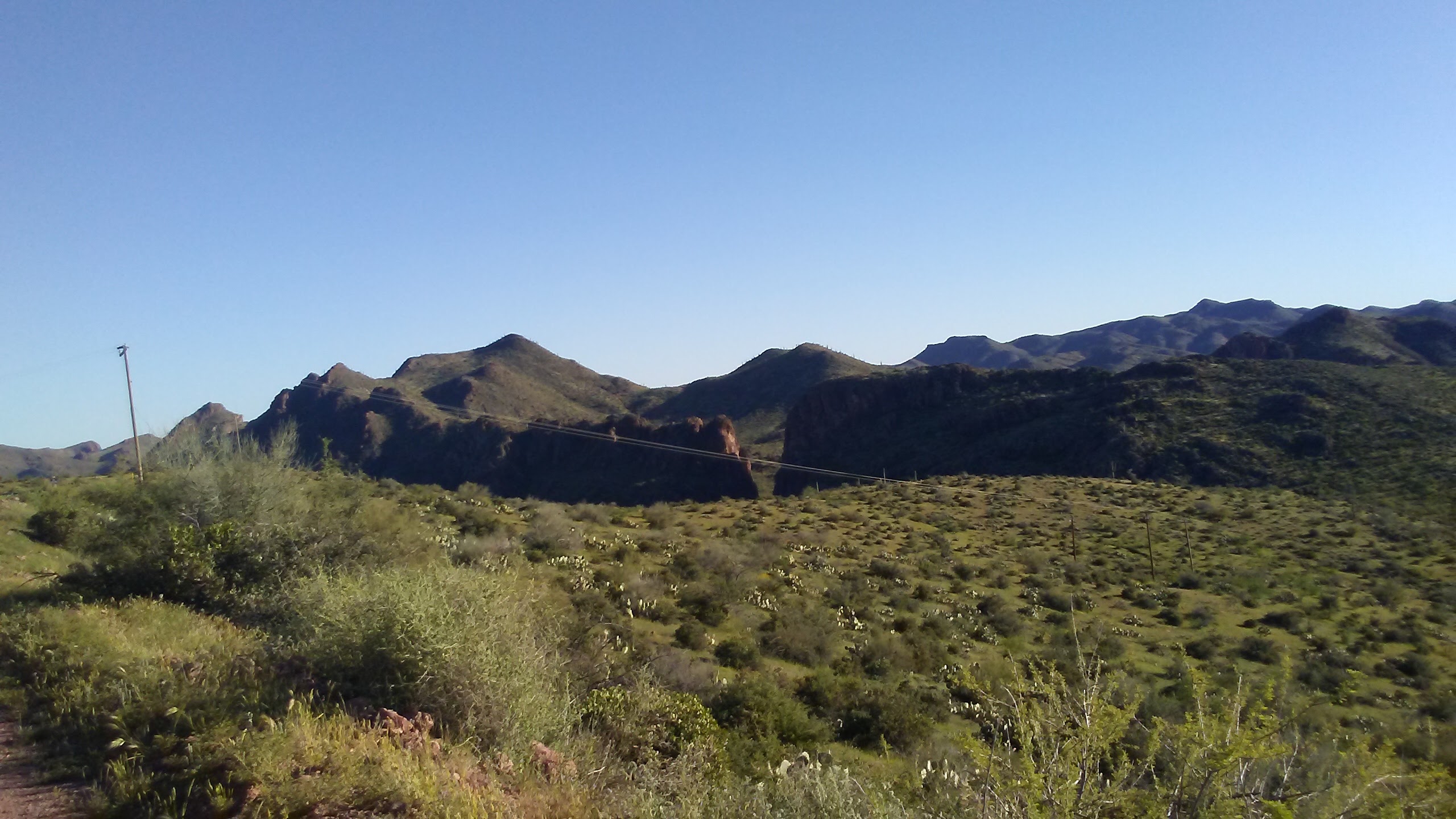
204 Comments Sent
Comment on Castle Hot Springs Road proposed closure.
Tags:
We Need Your Help To Keep Our Backroads Open!
Please become a member today!
